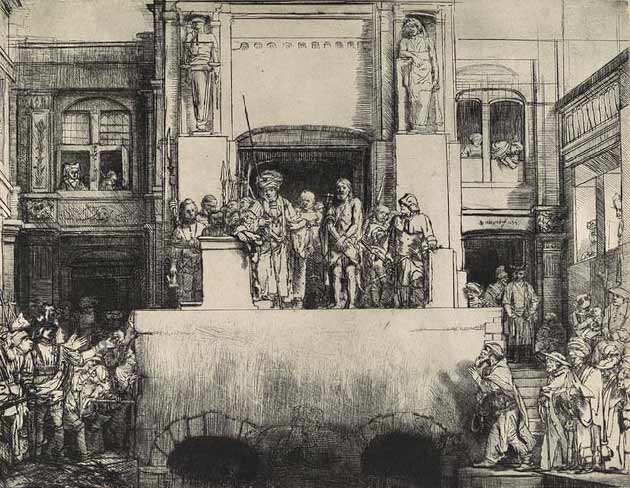|
 Episcopal
bishop John Shelby Spong concurs: "No one who would count the time
from sundown on Good Friday until dawn on Easter Sunday could
possibly get three days and three nights. The time was literally
thirty-six hours. Two nights and one day is the maximum one can
arrive at even in Matthew's version of the Easter event."
(The Easter Moment, John Shelby Spong, Kindle
location 1988). Are the critics on to something? Episcopal
bishop John Shelby Spong concurs: "No one who would count the time
from sundown on Good Friday until dawn on Easter Sunday could
possibly get three days and three nights. The time was literally
thirty-six hours. Two nights and one day is the maximum one can
arrive at even in Matthew's version of the Easter event."
(The Easter Moment, John Shelby Spong, Kindle
location 1988). Are the critics on to something?
Why three days and three nights? The Jewish custom is to count partial days as whole days:
"This is taken to signify then that part of a day is equivalent to a whole day. But has he not stated this once already?"
(Babylonian Talmud, Nazir 6a).
"Rami b. Hama demurred: Why indeed should she not count it, and why should not we also count it, seeing that we have an established rule that part of a day is regarded as the whole of it?"
(Babylonian Talmud, Niddah 33a).
"From this we have learned three things: First, that a
mourner must not wear shoes; second, that a remote-information
mourning is customary for only one day; and, third, that a part
of the day is considered as a whole day." (The Babylonian
Talmud, edited by Michael L. Rodkinson, Volume VIII, Tract Ebel
Rabbathi, Chapter XII, A, Kindle location 36151).
To give an example, Josephus counts eight days from sabbath to sabbath,
where we would count seven:
"He divided them also into courses: and when he had separated the priests from them, he found of these priests twenty-four courses, sixteen of the house of Eleazar, and eight of that of Ithamar; and he ordained that one course should minister to God eight days, from sabbath to sabbath."
(Josephus, Antiquities of the Jews, Book 7, Chapter 14.7)
While stated as an established rule, this custom was apparently
not universal, rather some teachers were known to count partial days
as whole days and some apparently not, causing potential confusion:
"Seven days? Have we not learned eight? Abba Saul is of the opinion
that a portion of a day counts for a whole day, and the seventh day
enters into the computation of both." (The Babylonian Talmud, edited
by Michael L. Rodkinson, Volume VII, Section Moed, Tract Katan,
Chapter III, Kindle location 30991).
The new course of priests go on duty at the same moment as the departing
course of priests leave, then serve for part of Saturday. Then Sunday,
Monday, Tuesday, Wednesday, Thursday, Friday. Next Saturday, they are on
duty part of the day, until the new course of priests arrive: that adds
up to eight days, not seven, although it is an even week. We interpret
'three days' to mean '72 hours.' We add up partial days by hours, dividing
by 24 to arrive at total days. But the Jewish chronologists, considering
that God in the creation narrative of Genesis counts days from 'evening'
to 'morning,' are unwilling to allow a variable, relative start to the
day, but only the fixed start assigned by God. If an event occupies even
part of that God-ordained time span, it is counted as a day. Not everyone,
of course, embraces this convention: "Am I, therefore, to conclude
that Jesus of Nazareth passed, not three days and three nights, but
one day and two nights, not in the sea but on the earth, not alive
but truly dead in a grave in a rock?" (Fragments of Reimarus, The
New Belief, Section XXXV, Kindle location 433). The convention,
however, is consistent, meaningful, and well-defined.
How long is Israel to eat unleavened bread? Seven days?: "Seven
days thou shalt eat unleavened bread, and in the seventh day shall
be a feast to the LORD." (Exodus 13:6). Josephus makes it eight:
"Whence it is that, in memory of the want we were then in, we
keep a feast for eight days, which is called the feast of
unleavened bread." (Josephus, Antiquities, Book II, Chapter 15, Section 1).
This could be a case of inclusive counting, where, as above, exactly a week comes out as eight days, counting partial days as
wholes. It could also be however that Josephus is folding the feast of
unleavened bread into the passover, counting both as starting on 14
Nisan: "As now the war abroad ceased for a while, the sedition
within was revived; and on the feast of unleavened bread, which was
now come, it being the fourteenth day of the month Xanthicus,
[Nisan,] when it is believed the Jews were first freed from the
Egyptians, Eleazar and his party opened the gates of this temple,
and admitted such of the people as were desirous to worship God into
it." (Josephus, Wars of the Jews, Book V, Chapter 3, Section 1).
It matters because of what was prophesied to happen on the 'third
day:'
"Come, and let us return to the Lord; for He has torn, but He will heal us; He has stricken, but He will bind us up.
After two days He will revive us; on the third day He will raise us up, that we may live in His sight."
(Hosea 6:1-2).
Jesus awaited resurrection for part of Friday, the entire day Saturday, both evening and
morning, and a part of Sunday. It's something of a mystery that some people
want to make Saturday a day of holy convocation, given that this was the
day Jesus was dead and in the grave! Whether to count a partial day as
a whole day is a convention. If agreed upon and used consistently, the
accusation of irrationality or inaccuracy is beside the point.
As another example of the idiom, see Esther 4:15-16: “Then Esther told them to reply to Mordecai:
'Go, gather all the Jews who are present in Shushan, and fast for me; neither eat nor drink for three days, night or day. My maids and I will fast likewise. And so I will go to the king, which is against the law; and if I perish, I perish!'”
Compare with, “Now it happened on the third day that Esther put on her royal robes and
stood in the inner court of the king’s palace, across from the
king’s house, while the king sat on his royal throne in the royal
house, facing the entrance of the house.” (Esther 5:1). Notice it
isn't said, 'they decided to cut the period of the fast short;' they
didn't cut it short, even though by our way of reckoning 'on the
third day' is short of three days and nights. To us, the start point
of a 'day' is arbitrary, but to scrupulous Bible students it is not,
it is assigned by God in the first chapter of Genesis. Since the
starting point is not arbitrary and cannot be moved, fragmentary
days must be counted as days.
The Rabbis followed through consistently on this template of
counting fragmentary bits of time as wholes, for instance years:
"The rabbis taught: A king who ascends the throne on the 29th of
Adar must be considered to have reigned one year as soon as the
first of Nissan comes, but if he ascends the throne on the first of
Nissan he is not considered to have reigned one year until the first
of Nissan of the following year. From this we infer, that only
Nissan is the commencement of years for kings (or the civil New
Year); that even a fraction of a year is considered a year; and that
if a king ascends the throne on the first of Nissan, he is not
considered to have reigned one year until the next first of Nissan,
although he may have be elected in Adar." (The Babylonian Talmud,
edited by Michael L. Rodkinson, Tract Rosh Hashanah, Volume IV, Section Moed,
Kindle location 15189). Now, certainly one can respond, 'That's wrong, a
year is 365 days, just as a day is 24 hours;' what one cannot say is, 'I
don't understand what they are saying.'
Let this 'Bible Difficulty' serve as exemplar for those numerous
problems raised by atheists where they are objecting to some
characteristic or convention of the Hebrew or Greek languages, in which
the Bible is written. When you go into a restaurant in the United
States and ask for pie a la mode, they give you a slice of pie with a
scoop of ice cream on top of it. Why should tacking the French
phrase for 'in the fashion' onto the word 'pie' get you a scoop of
ice cream? Because that's what it means. Complaints about the
presumed etymologies of Bible words misfire, because even if the
actual etymology is as stated (which is not generally verifiable),
God is bound by the conventions of the language He condescends to
use much as is any other speaker. He need not defend the convention of
counting fractional days as integer days against rival conventions, nor
need we, in repeating His words. That is how it was done. The fact that we
do it differently is vaguely interesting, no more.

|

